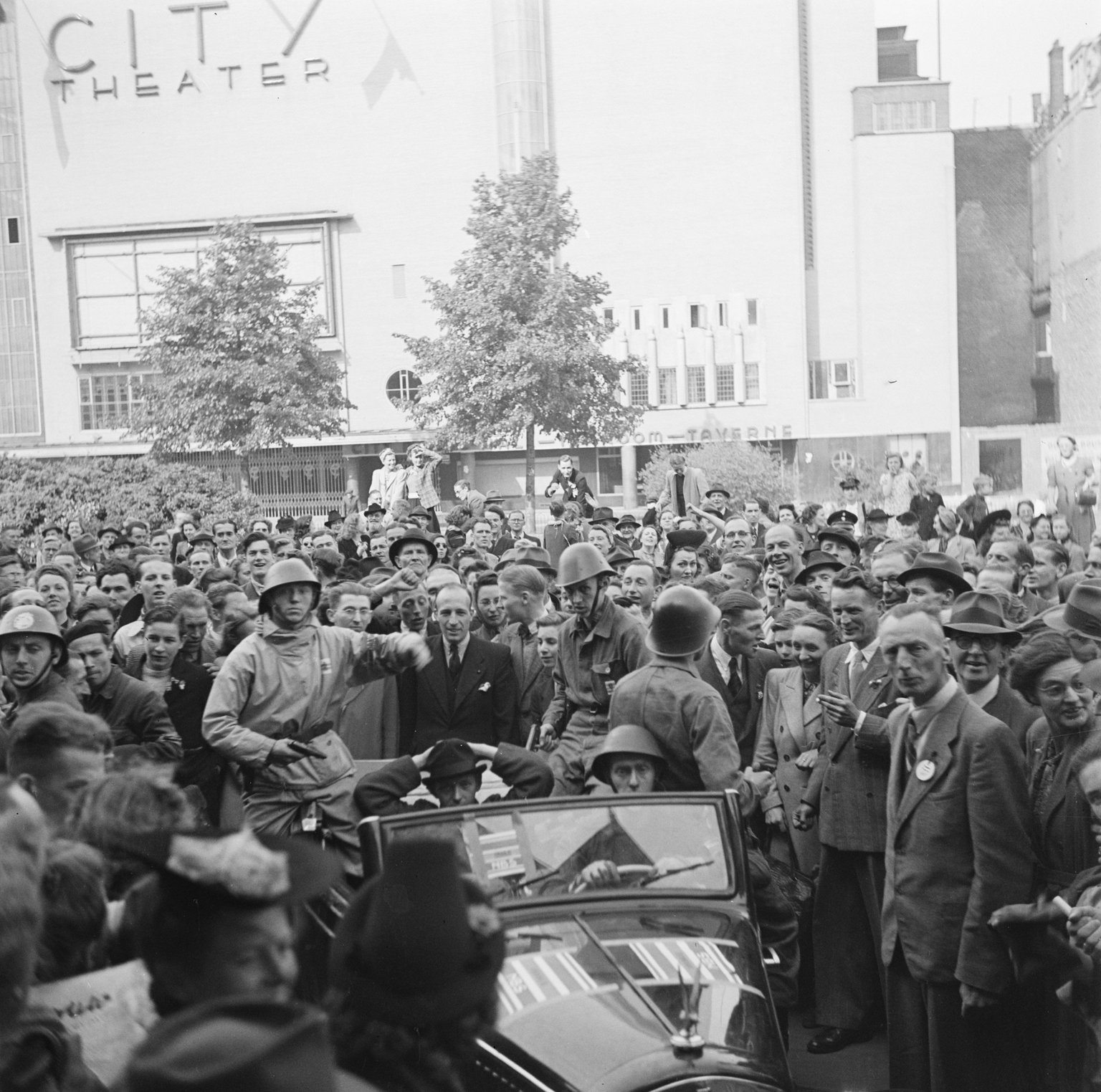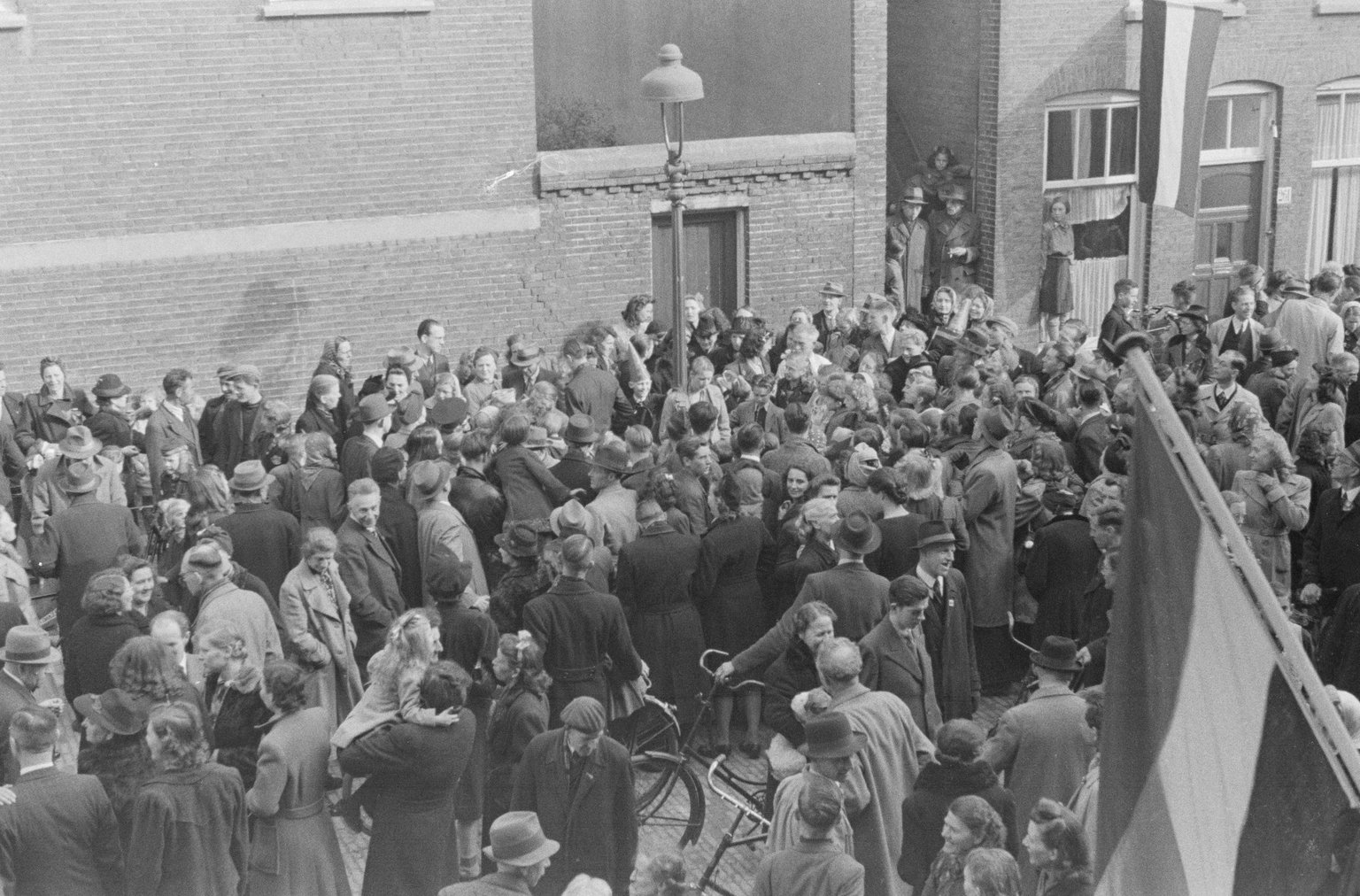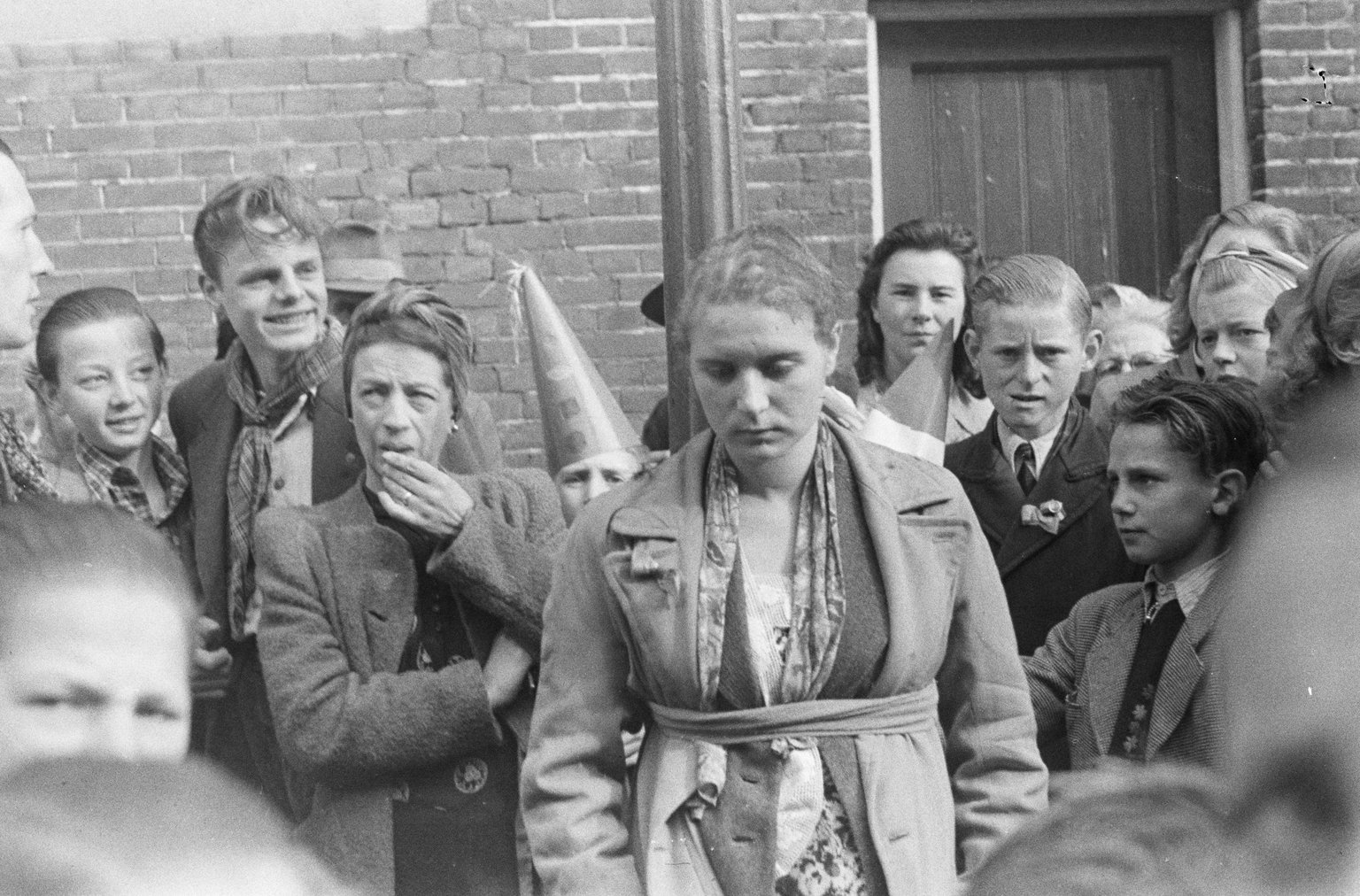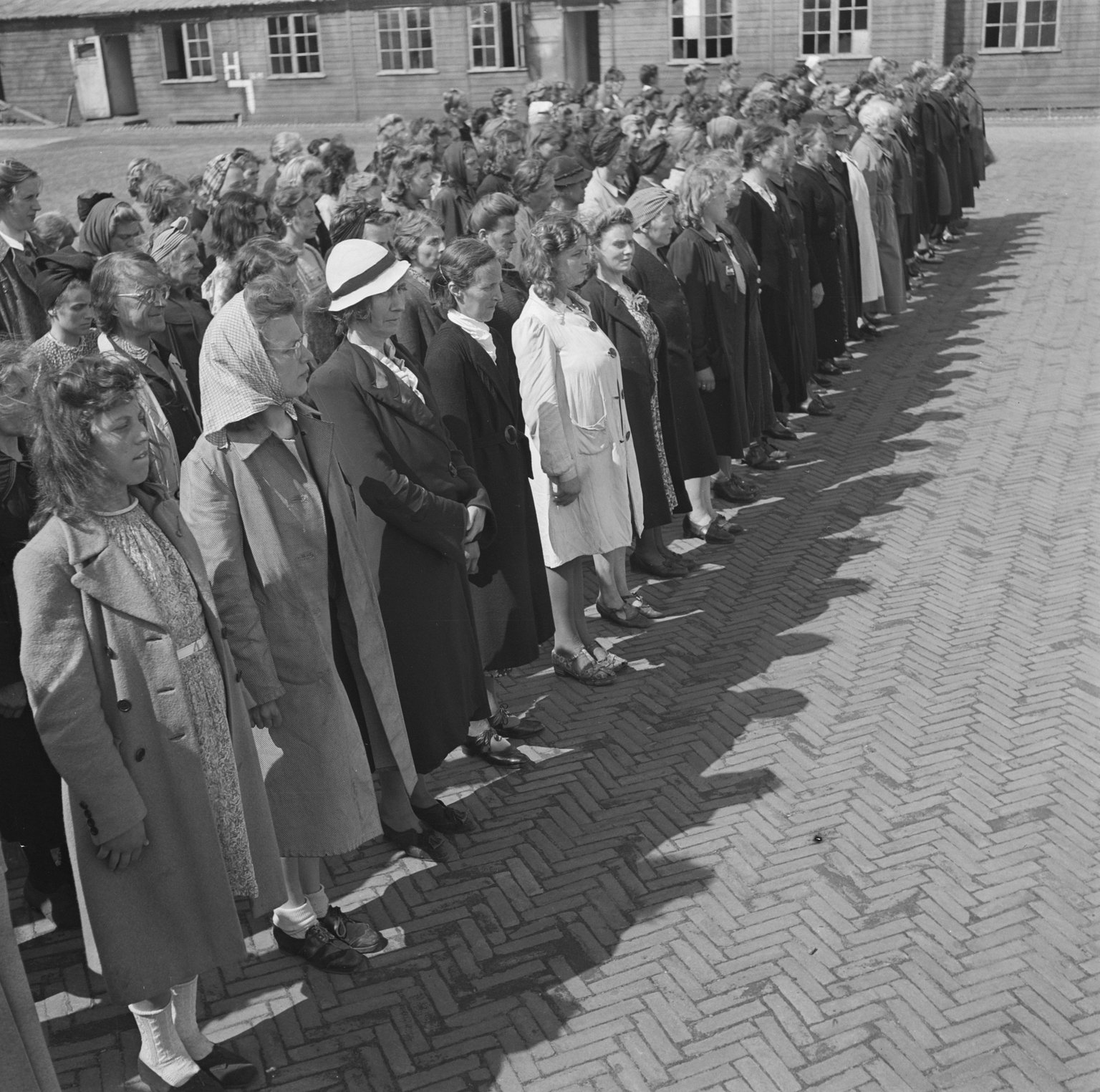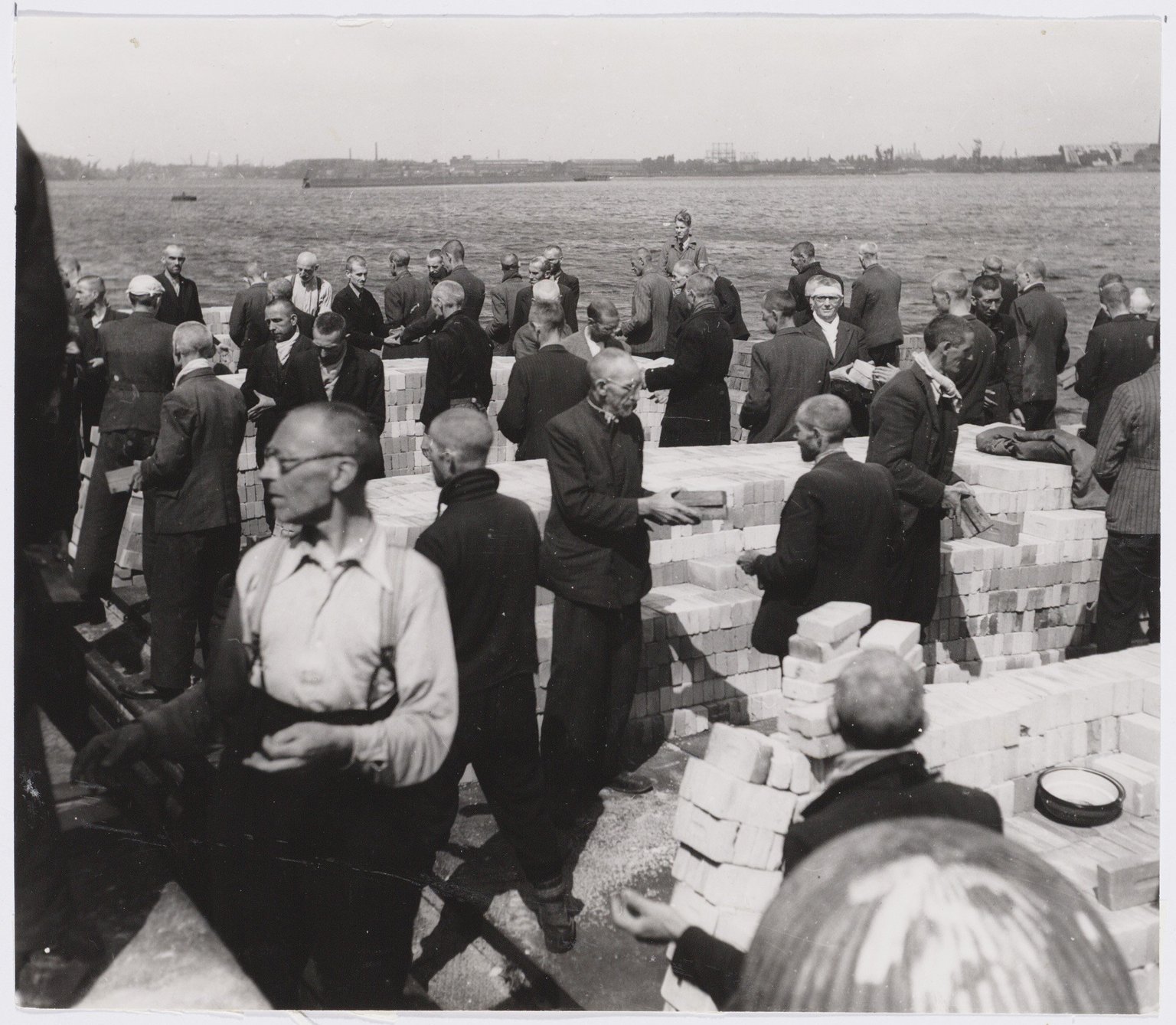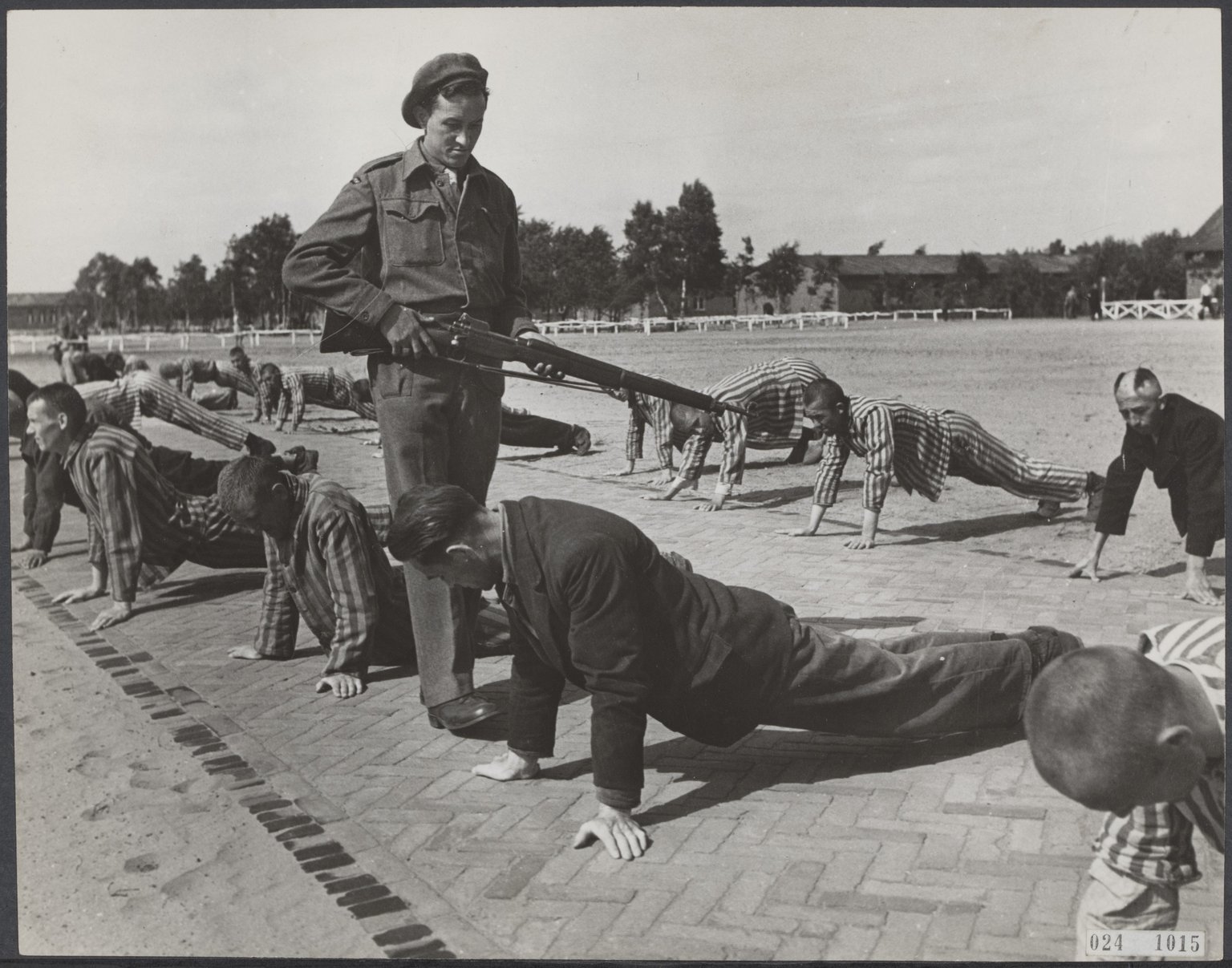Liberation was not just a reason for celebration, but also an opportunity to take revenge on the Dutch who had collaborated with the Germans. Five years of humiliation, frustration, and powerlessness found release in violence against the traitors. The time for reckoning had come.
NSB members and collaborators were taken from their homes, mistreated, hoisted onto wagons, and pulled through the streets. People along the way shouted insults and spit at them. The hair of the wives of NSB members and of girls who had had relationships with German soldiers was shaved off.
Many retaliatory actions were not coordinated or approved by the authorities. Some people used the events to settle personal scores. Resistance fighters were sometimes accused of collaboration because they had been in contact with the Germans in order to obtain information.
A total of approximately 120,000 NSB members and collaborators were arrested. Before long, the prisons and police stations were overcrowded, and the detainees were locked up in schools, factories, and sheds. The former concentration camps Westerbork and Vught were also used as prisons.
Some of the arrested people were later tried by the Special Court of Justice, which had been established to deal with crimes committed during the war.
